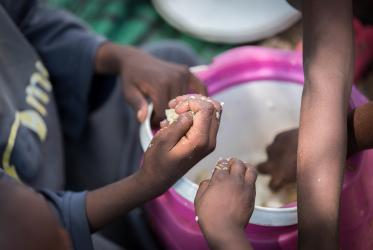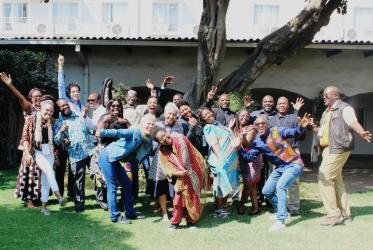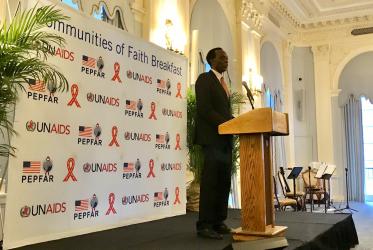Displaying 41 - 60 of 169
Young people in Togo: “Hear our voice! We want to tell our stories!”
07 November 2019
Youth leaders: “We will stop at nothing” to end HIV and violence
17 October 2019
Kenya schools invest in young people to end new HIV infections
18 September 2019
Frontline advocates in Uganda are putting a stop to HIV stigma
16 September 2019
Moravian Church in Tanzania launches Thursdays in Black
10 September 2019
Extended drought in Africa leaves millions in need
09 August 2019
WCC treatment manuals address HIV challenges in Uganda
02 August 2019













